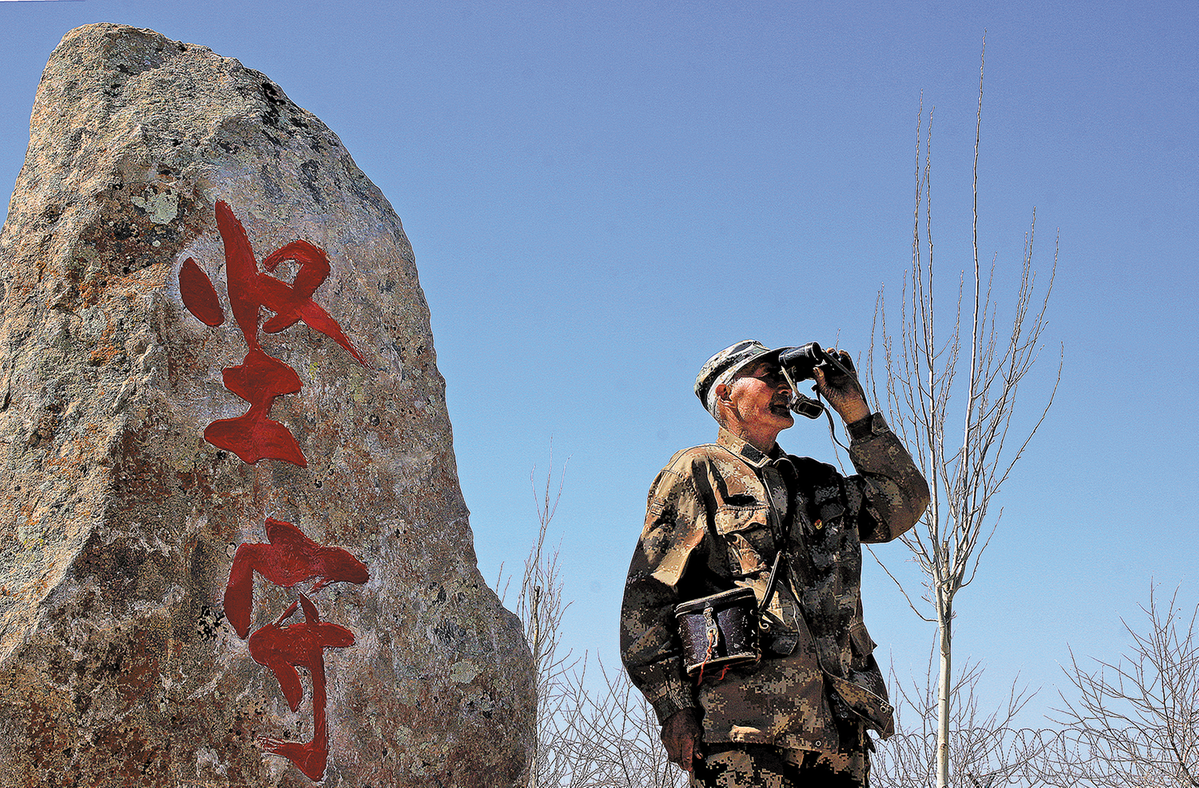Dutiful life in the middle of nowhere earns man award


Veteran Wei Deyou has watched western border for decades in remote frontier
In 1967, Liu Jinghao, a woman from Eastern China's Shandong province, traveled thousands of kilometers to fulfill an engagement in the Xinjiang Uygur autonomous region, in the country's far west. She was on her way to marry a 27-year-old veteran.
Wei Deyou, the groom-to-be, had served four years in the military until he headed west in 1964. He had grown up in the same village as Liu, and neighbors introduced them to each other.
As Liu arrived in Xinjiang, she felt a sense of regret.
Reluctantly, she was forced to take a donkey wagon to cross the desolate, roadless wilderness that lay between her and her fiance, who was living in Sarbulak, an area west of Urumqi, near the border of Kazakhstan, then part of the Soviet Union. She was shocked by what she saw when she arrived.
The wedding room Wei had prepared for his future wife was a shelter dug underground, and as Liu looked around, she saw that they were alone.
The nearest human to them was a fellow veteran stationed a few dozen kilometers away.
As summer got underway, sandstorms and gadfly infestations the following month proved too much. Liu packed up her stuff and left one afternoon.
It took Wei 40 minutes to catch up to his wife.
"Where are you going?" He shouted as he approached. "There are wolves around here."
Liu stopped. Eventually, Wei was able to persuade her to turn back and the couple went home together.
Although he had promised his wife they would leave after a few years, the couple remained in Sarbulak for the next 57 years, raising four children and helping Wei fulfill the promise he had made the first time he went to Xinjiang.
In 1964, answering the country's call, Wei joined the Xinjiang Production and Construction Corps, and as a veteran who wanted to keep serving, he promised he would go to wherever the corps pointed on a map.
A unique State-owned economic and paramilitary organization, the corps is mostly composed of former soldiers, and after it was deployed in the region in the 1950s, many members retired and began to participate in local economic development.




































